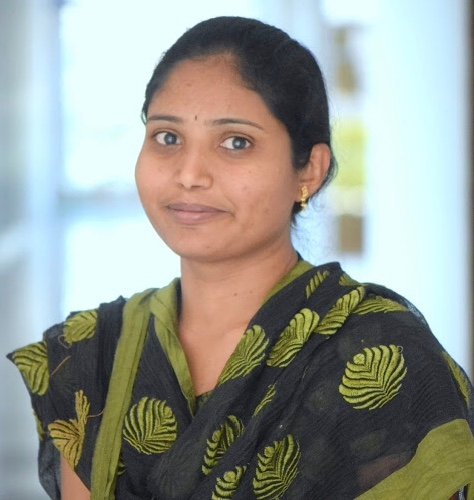A new Undergraduate Program in Computer Science (Cyber Security) has been introduced from the Academic Year 2023-24, duly approved by the All India Council for Technical Education (AICTE), New Delhi, with an intake of 60 seats.
Cyber Security is a critical and rapidly evolving field dedicated to protecting the confidentiality, integrity, and availability of digital systems and data. With the increasing frequency and sophistication of cyber threats, there is a growing demand for skilled professionals who can safeguard information assets, secure networks, and defend against cyberattacks.
This specialized program emphasizes the principles of network security, cryptography, ethical hacking, digital forensics, and security architecture. It is designed to equip students with the knowledge and skills required to anticipate, prevent, and mitigate Cyber Security risks in diverse sectors, including finance, healthcare, defence, and critical infrastructure.
Additionally, the integration of Blockchain Technology with Cyber Security practices enhances data security by providing immutable, transparent, and verifiable records of transactions. Blockchain’s inherent features of decentralization and encryption further strengthen protection against unauthorized access and data manipulation.
This program prepares graduates to address contemporary Cyber Security challenges and contribute to building secure digital ecosystems for the future.


Dr. Mamatha C M is a Professor & Head in the Department of Computer Science and Engineering in Cyber Security at RL Jalappa Institute of Technology (RLJIT), Doddaballapur, Karnataka, India. With a strong academic background and extensive teaching experience, she has been actively involved in mentoring students, conducting research, and contributing to the academic growth of the institution. Her areas of interest include computer networks, data science, artificial intelligence, and software engineering. Dr. Mamatha has guided numerous undergraduate and postgraduate projects, and she actively participates in national and international conferences as reviewer and session chair. She is also involved in curriculum development and quality assurance in technical education. Dr. Mamatha is committed to academic excellence and is passionate about promoting research and innovation in the field of computer science with 20 research papers published in reputed journal and 4 Patents
HOD, Department of Cyber Security, RLJIT
1. To provide high‑quality cyber security education, innovative research, and hands‑on training that prepare professionals to protect digital assets and lead in industry, academia, and society.
2. To create an outstanding learning and research environment in cyber security by adopting innovative pedagogy, lab‑based instruction, and applied research that advances secure technologies and practices.
PEO1: Technical Proficiency and Employability : Demonstrate strong foundational knowledge and practical skills in cyber security to secure employment, contribute effectively to professional teams, and address real-world digital security challenges.
PEO2: Research Orientation and Lifelong Learning: Engage in higher education, advanced research, and continuous learning to adapt to evolving technologies and emerging threats in cyber security.
PEO3: Ethical Leadership and Societal Impact: Exhibit leadership, ethical integrity, legal awareness, and a commitment to secure and sustainable digital practices for the betterment of society.
PSO1: Cyber Defense and Secure System Development: Design, develop, and implement secure systems, networks, and applications using appropriate cyber security tools, protocols, and practices.
PSO2: A Threat Analysis and Risk Mitigation: Analyze threats, detect vulnerabilities, perform risk assessments, and implement effective strategies for incident response and mitigation.
PSO3: Ethics, Law, and Professional Practice Apply cyber laws, ethical principles, and security standards to ensure responsible and lawful conduct in cyber security operations.
1: Engineering knowledge: Apply the knowledge of mathematics, science, engineering fundamentals, and an engineering specialization to the solution of complex engineering problems.
2: Problem analysis: Identify, formulate, review research literature, and analyze complex engineering problems reaching substantiated conclusions using first principles of mathematics, natural sciences, and engineering sciences.
3: Design/development of solutions: Design solutions for complex engineering problems and design system components or processes that meet the specified needs with appropriate consideration for the public health and safety, and the cultural, societal, and environmental considerations.
4: Conduct investigations of complex problems: Use research-based knowledge and research methods including design of experiments, analysis and interpretation of data, and synthesis of the information to provide valid conclusions.
5: Engineering Tool Usage: Create, select, and apply appropriate techniques, resources, and modern engineering and IT tools including prediction and modeling to complex engineering activities with an understanding of the limitations.
6: The Engineer and The World: Apply reasoning informed by the contextual knowledge to assess societal, health, safety, legal and cultural issues and the consequent responsibilities relevant to the professional engineering practice.
7: Ethics: Apply ethical principles and commit to professional ethics and responsibilities and norms of the engineering practice.
8: Individual and team work: Function effectively as an individual, and as a member or leader in diverse teams, and in multidisciplinary settings.
9: Communication: Communicate effectively on complex engineering activities with the engineering community and with society at large, such as, being able to comprehend and write effective reports and design documentation, make effective presentations, and give and receive clear instructions.
10: Project management and finance: Demonstrate knowledge and understanding of the Engineering and management principles and apply these to one’s own work, as a member and leader in a team, to manage projects and in multidisciplinary environments.
11: Project management and finance: Demonstrate knowledge and understanding of the Engineering and management principles and apply these to one’s own work, as a member and leader in a team, to manage projects and in multidisciplinary environments.
In today’s digital world, Cybersecurity has emerged as one of the most critical and in-demand fields globally. As technology advances, so do the threats to digital systems, data, and privacy. Organizations across all sectors—banking, healthcare, defence, government, and corporate enterprises—require skilled professionals to safeguard their systems against increasing cyber threats. Choosing Cybersecurity as a specialization opens up opportunities to be at the forefront of protecting critical digital infrastructure, defending against cybercrimes, and ensuring the security of sensitive information.
Conclusion: By choosing Computer Science (Cybersecurity), students position themselves at the centre of technological progress, prepared to face one of the world’s most critical challenges—securing the digital future.